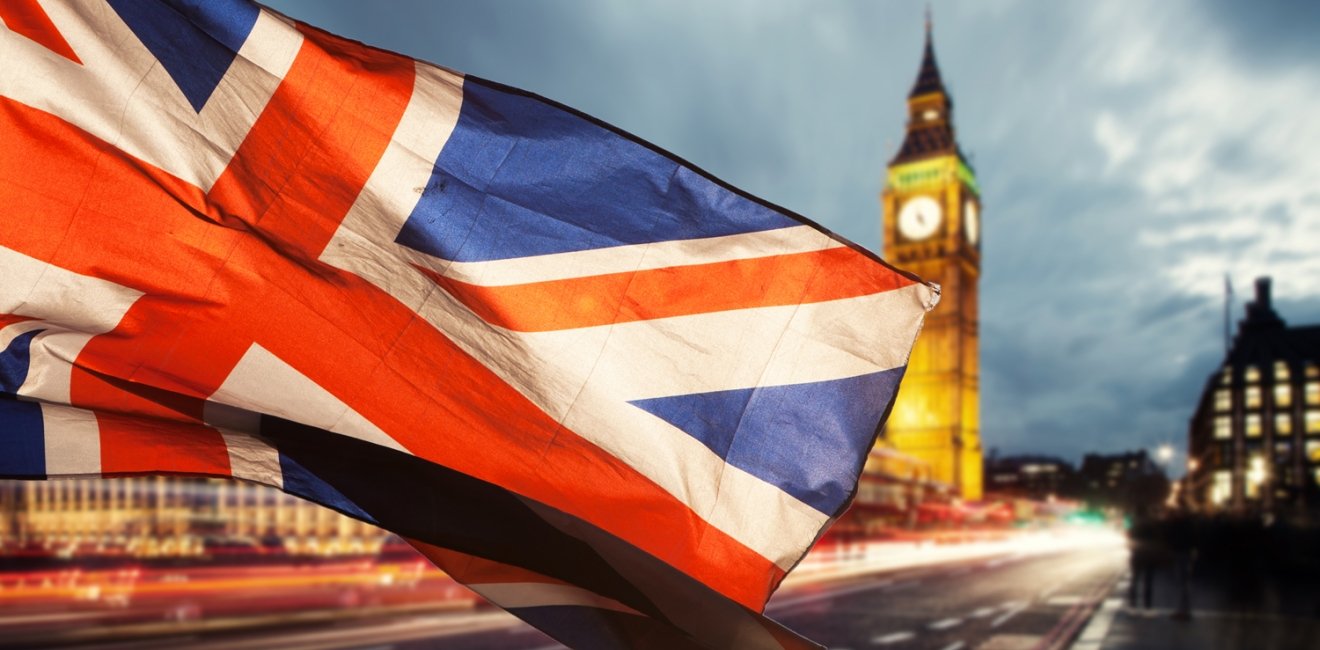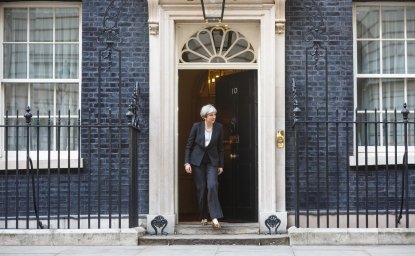A Hung Parliament: What Lies Ahead for Britain?
A hung parliament is loathed by British politicians. May can remain rigidly on course, as is her preference, but she will now meet the reality of parliamentary limitations.
A hung parliament is loathed by British politicians. May can remain rigidly on course, as is her preference, but she will now meet the reality of parliamentary limitations.

A hung parliament is loathed by British politicians. It means that no one party has the sufficient number of seats to pass necessary legislation, such as the budget. It requires haggling with smaller parties that extract their pound of flesh in exchange for their votes. David Cameron successfully created a formal coalition with the Liberal Democrats (Lib Dems) in 2010, accepting Nick Clegg as the Deputy Prime Minister and giving a significant role to an otherwise small party. Their shared goal was to negotiate a better deal within the European Union (EU) so as to quieten Euro-sceptics and keep Britain in Europe. The coalition worked well until Cameron faced a general election in 2015 and emerged with a majority of 30 seats. He then dispatched Nick Clegg and the Lib Dems to the back benches. Triumphant, Cameron called for a referendum on continued British membership in the EU, but on June 23, he emerged defeated. British citizens voted 52 to 48 to exit the EU. The majority of Brits, unaware of the consequences, voted for BREXIT. Defeated, Cameron tumbled out of politics and Conservative party members throughout the country voted for the Home Secretary, Theresa May, to succeed him. She kept faith with the majority of UK voters and set out to exit the EU.
May’s intent in calling a general election some 7 weeks ago was to strengthen her position as party leader, increase her parliamentary margin, and thus provide a stronger hand in her negotiations with Michel Barnier, the highly skilled EU negotiator. Instead of a clear parliamentary majority, the Conservatives scraped together 318 seats, 8 short of the 326 necessary to lead. (As of this writing one parliamentary seat remains undecided.) Alone, the Conservatives do not have sufficient seats to pass legislation, let alone persuade a skeptical nation that their negotiating position is the best for Britain. May has said she will begin BREXIT negotiations on June 19, but her hand is significantly weakened.
A hung parliament is loathed by British politicians.
May must now form a coalition with the Democratic Unionist Party of Northern Ireland (DUP), an independent political grouping which has traditionally voted with the Conservatives. They support BREXIT and can lend her 10 seats, creating a narrow governing majority of 328. Together, they have an informal agreement that will require constant negotiations to ensure support for economic and budgetary matters. Meantime, the hardline Conservatives who formally supported UKIP will bark from the back benches, demanding that the Prime Minister remain true to her promised total break from the EU.
Explanation for the Conservative party’s failure to achieve that increased majority is found in the Election Manifesto which set out the reasons for limits and cuts in health care and social spending that affected the elderly. Elderly voters are the backbone of the Conservative party and they loudly made their complaints known. May appeared not to listen. She was rigid, determined, and lacked the necessary compassion to keep traditional supporters happy.
Jeremy Corbyn, on the other hand, proved to be a surprisingly successful Labour party leader. His manifesto, “For the Many, not the Few” promised expansion of health care, more funding for ‘starving schools’ and a redistribution of wealth. For some, this was fantasy. For others, “For the Many, not the Few” demonstrated that Labour cared for them, even if payment of the programs was doubtful. Pollsters had predicted a Corbyn loss. Instead, he gained 14 to reach 266 seats, making him a more powerful opposition.
May can remain rigidly on course, as is her preference, but she will meet the reality of parliamentary limitations.
The Liberal Democrats, who were the only pro-EU-remainers, did not profit from the Conservative losses. They kept 12 seats. However, in a hung parliament with no single party holding the sufficient number of seats to create a working majority, the Lib Dems have greater capacity to exercise leverage. They have promised not to enter into a coalition government and will remain committed to Britain’s active role within the EU. Now, they will be in a parliamentary position to bring down May’s government should 2 Conservatives or DUP’s take to their sick beds.
May can remain rigidly on course, as is her preference, but she will meet the reality of parliamentary limitations. Alternatively, she can adapt to her weakened position and accommodate to those who believe that better access for British trade and investment in the EU can be achieved even at the cost of some European migration. Her former stand of withdrawal from the Four Freedoms that make up the EU could be softened to take into account Labour’s demand for economic and trade access to the European markets. The Prime Minister will be buffeted from hard-right backbenchers who demand total withdrawal from the EU, Labour’s insistence on integrated trade that boosts exports, investments and decent jobs and the Lib Dems whose election manifesto called for Britain to remain in Europe. May will now have to negotiate constantly with parliamentarians at Westminster while at the same time negotiating with hard-nosed Europeans. Concessions will have to made, and my guess is that they may be easier to make around the baize table and dimmer lights of Brussels.


The Global Europe Program is focused on Europe’s capabilities, and how it engages on critical global issues. We investigate European approaches to critical global issues. We examine Europe’s relations with Russia and Eurasia, China and the Indo-Pacific, the Middle East and Africa. Our initiatives include “Ukraine in Europe”—an examination of what it will take to make Ukraine’s European future a reality. But we also examine the role of NATO, the European Union and the OSCE, Europe’s energy security, transatlantic trade disputes, and challenges to democracy. The Global Europe Program’s staff, scholars-in-residence, and Global Fellows participate in seminars, policy study groups, and international conferences to provide analytical recommendations to policy makers and the media. Read more



